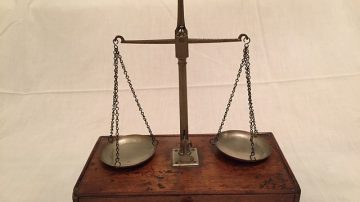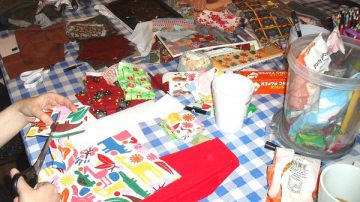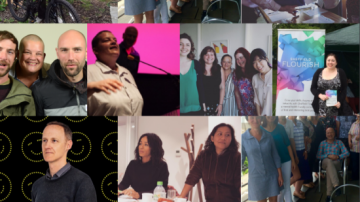The first time I heard of C-PTSD was on outofthefog, a website supporting those affected by abusive relationships and personality disorders.
I had just overcome a big depression and realised it was the result of being emotionally abused by a family member since childhood. With a passion for psychology and desire to know more about how abuse can affect a person’s life, I began researching the signs often associated with it. I recognised almost 100 signs or techniques of abuse from my own experience.
I knew there were consequences to such an ordeal as I have dealt with chronic low self-esteem, fear of making mistakes, and codependency in relationships with emotionally unavailable partners – often triggering anxiety and crying spells as a result.
I was looking to gain a better understanding of my symptoms. Post Traumatic Stress Disorder (PTSD) did not really fit as I did not have flashbacks or any of the other classic symptoms. For a while I thought I had bipolar disorder as quite a few of the associated symptoms resonated with me, like the fear of abandonment and the chronic emptiness and low self-esteem. But it still felt like it didn’t quite ring true.
Then I stumbled upon a link about C-PTSD, a complex form of PTSD. After reading through the symptoms and risks of onset, I had a lightbulb moment. This was it! I mentioned it to my therapist who said something along the lines of, “duh, of course you have C-PTSD!”. The rest is history – or at least I wish it was.
Complex PTSD is a relatively unknown and under-researched condition, and is still not recognised in the leading publications concerning mental disorders – the DSM-5 from the American Psychiatric Association and the ICD-10 from the World Health Organization. It is also sometimes misdiagnosed as BPD as many of the symptoms overlap.
While both PTSD and C-PTSD occur after traumatic events, PTSD typically occurs after “short-lived” traumas. C-PTSD, on the other hand, occurs after repeated instances of trauma in which there is a limited chance of escape. C-PTSD is common in cases of childhood abuse, be it sexual, emotional, physical or in cases of long-held captivity. It often distorts the victim’s view of themselves and the world around them.
My C-PTSD came from repeated instances of abuse from a close family member, who belittled, gaslighted, and guilt-tripped me. This could be brought about by simple disagreements, or not complying with their excessive emotional needs. I remember one evening they were being nice to me, before calling me ungrateful, undeserving, and not deserving of their love unless I did exactly what they wanted. Needless to say, my self-esteem and sense of identity took a massive hit because of it.
According to the NHS website, symptoms of C-PTSD include:
● feelings of shame or guilt
● difficulty controlling your emotions
● periods of losing attention and concentration (dissociation)
● physical symptoms – such as headaches, dizziness, chest pains, and stomach aches
● cutting yourself off from friends and family
● relationship difficulties
● destructive or risky behaviour – such as self-harm, alcohol misuse, or drug abuse
● suicidal thoughts
In my case, the most prevalent symptoms are the chronic feelings of shame and guilt, high-running emotions, and relationship difficulties. The destructive behaviour comes
in the form of chronic procrastination – feeling like I can’t achieve my goals or better myself, or that I am not worth the effort. I am emotionally codependent and could get overly attached to unhealthy partners very rapidly. I wanted someone to love me and prove my abuser wrong. Surprisingly, that didn’t work!
How do I cope? Therapy, when I can access it. Otherwise I try to push myself out of my comfort zone and prove to myself that I can succeed in doing things that scare me. My biggest triggers are within relationships, and I am okay if I avoid fights with my partner. When there is a fight, I can spiral downwards very quickly.
I don’t know if I’ll ever fully recover and rid myself of the C-PTSD, but I am taking steps to
keep it manageable and develop healthy coping mechanisms. I also chose to cut out from my life the family member who abused me which is probably the boldest thing I have ever done.



